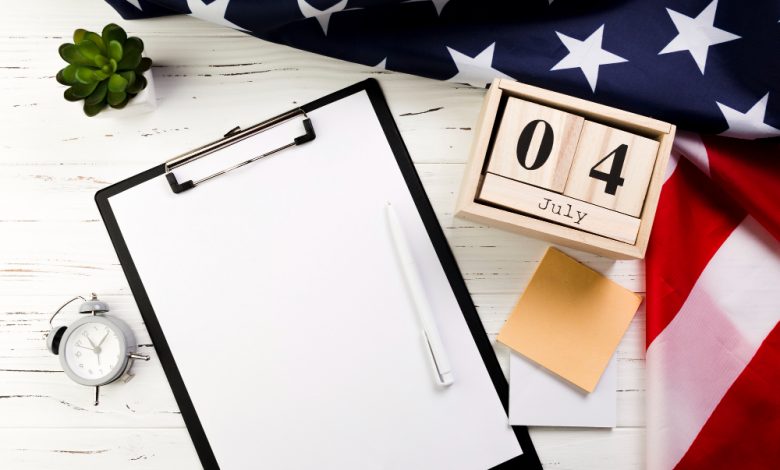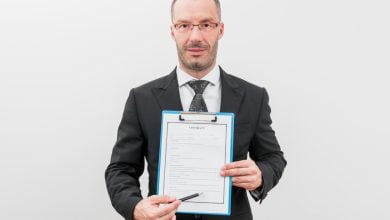The Top 100 Personal Injury Lawyers: Your Guide to Legal Expertise

In a world where accidents happen unexpectedly, having a trustworthy personal injury lawyer by your side can make all the difference. But with countless legal professionals out there, how do you find the best one for your case? Fear not! This comprehensive guide will navigate you through the realm of personal injury law, showcasing the top 100 personal injury lawyers who are ready to fight for your rights.
1. Understanding Personal Injury Law
Personal injury law encompasses a broad spectrum of legal cases involving injuries to individuals. These injuries can result from car accidents, medical malpractice, workplace incidents, and more. The fundamental principle of personal injury law is to seek compensation for the harm caused by another party’s negligence or wrongdoing.
2. Qualities of a Top Personal Injury Lawyer
Experience: A top personal injury lawyer will have years of experience handling various types of injury cases. Expertise: They possess in-depth knowledge of personal injury laws and legal procedures. Compassion: They genuinely care about their clients’ well-being and strive to achieve the best possible outcomes. Communication Skills: Effective communication is key to building a strong attorney-client relationship. Track Record: Look for a lawyer with a proven track record of successful settlements and verdicts.
3. Researching the Best Lawyers
Start your search by seeking recommendations from trusted sources such as friends, family, or other attorneys. Additionally, online directories and review websites can provide valuable insights into the reputation and performance of personal injury lawyers in your area.
4. Top 100 Personal Injury Lawyers: Who Made the Cut?
Our list of the top 100 personal injury lawyers features professionals who have demonstrated exceptional skill, integrity, and dedication to their clients’ cases. These lawyers have earned recognition for their outstanding achievements and commitment to justice.
5. Case Studies: Success Stories
Explore real-life case studies to understand how top personal injury lawyers have helped clients recover compensation for their injuries. These success stories highlight the impact of skilled legal representation in securing favorable outcomes for accident victims.
6. How to Choose the Right Lawyer
Consider factors such as the lawyer’s area of expertise, past case results, and communication style when selecting a personal injury lawyer. Schedule consultations with multiple attorneys to discuss your case and assess which one is the best fit for you.
7. The Importance of Communication
Open and transparent communication between you and your lawyer is essential throughout the legal process. Your lawyer should keep you informed about the progress of your case and promptly address any concerns or questions you may have.
8. Fees and Payment Structures
Most personal injury lawyers work on a contingency fee basis, meaning they only get paid if they win your case. Ensure you understand the fee structure and any additional costs associated with legal representation before committing to a lawyer.
9. Handling Insurance Companies
Dealing with insurance companies can be challenging, but a skilled personal injury lawyer can handle negotiations on your behalf. They will work to maximize your compensation and prevent insurance companies from taking advantage of you.
10. The Role of Negotiation
Many personal injury cases are resolved through negotiation rather than going to trial. Your lawyer will negotiate with the opposing party to reach a fair settlement that adequately compensates you for your injuries and losses.
11. Going to Court: What to Expect
If a settlement cannot be reached through negotiation, your case may proceed to trial. Your lawyer will prepare you for the courtroom experience and advocate for your rights before a judge and jury.
12. Client Testimonials
Reading testimonials from past clients can provide valuable insight into a lawyer’s reputation and client satisfaction. Look for testimonials that highlight the lawyer’s professionalism, empathy, and successful case outcomes.
13. Staying Informed: Legal Resources
Stay informed about personal injury law and your rights as an accident victim by accessing reputable legal resources. Websites, books, and community organizations can provide valuable information and support throughout your legal journey.
14. Frequently Asked Questions (FAQs)
Q1. How do I know if I have a valid personal injury case? A: If you have been injured due to someone else’s negligence or intentional actions, you may have a valid personal injury case.
Q2. How much does it cost to hire a personal injury lawyer? A: Most personal injury lawyers work on a contingency fee basis, meaning they only get paid if they win your case.
Q3. How long does it take to settle a personal injury claim? A: The duration of a personal injury case varies depending on factors such as the complexity of the case and the willingness of the parties to negotiate.
Q4. Will I have to go to court for my personal injury case? A: Many personal injury cases are settled out of court through negotiation, but some may proceed to trial if a settlement cannot be reached.
Q5. How much compensation can I expect for my personal injury claim? A: The amount of compensation you may receive for your personal injury claim depends on factors such as the severity of your injuries, medical expenses, lost wages, and pain and suffering.
15. Conclusion
Navigating the complexities of personal injury law can be daunting, but with the right legal representation, you can obtain the compensation you deserve. By choosing one of the top 100 personal injury lawyers featured in this guide, you can rest assured knowing that your case is in capable hands. Remember to stay informed, communicate openly with your lawyer, and trust in the legal process to achieve a favorable outcome for your personal injury claim.
1. Understanding Personal Injury Law
Personal injury law encompasses a broad spectrum of legal cases involving injuries to individuals. These injuries can result from car accidents, medical malpractice, workplace incidents, and more. The fundamental principle of personal injury law is to seek compensation for the harm caused by another party’s negligence or wrongdoing.
2. Qualities of a Top Personal Injury Lawyer
Experience: A top personal injury lawyer will have years of experience handling various types of injury cases. Expertise: They possess in-depth knowledge of personal injury laws and legal procedures. Compassion: They genuinely care about their clients’ well-being and strive to achieve the best possible outcomes. Communication Skills: Effective communication is key to building a strong attorney-client relationship. Track Record: Look for a lawyer with a proven track record of successful settlements and verdicts.
3. Researching the Best Lawyers
Start your search by seeking recommendations from trusted sources such as friends, family, or other attorneys. Additionally, online directories and review websites can provide valuable insights into the reputation and performance of personal injury lawyers in your area.
4. Top 100 Personal Injury Lawyers: Who Made the Cut?
Our list of the top 100 personal injury lawyers features professionals who have demonstrated exceptional skill, integrity, and dedication to their clients’ cases. These lawyers have earned recognition for their outstanding achievements and commitment to justice.
5. Case Studies: Success Stories
Explore real-life case studies to understand how top personal injury lawyers have helped clients recover compensation for their injuries. These success stories highlight the impact of skilled legal representation in securing favorable outcomes for accident victims.
6. How to Choose the Right Lawyer
Consider factors such as the lawyer’s area of expertise, past case results, and communication style when selecting a personal injury lawyer. Schedule consultations with multiple attorneys to discuss your case and assess which one is the best fit for you.
7. The Importance of Communication
Open and transparent communication between you and your lawyer is essential throughout the legal process. Your lawyer should keep you informed about the progress of your case and promptly address any concerns or questions you may have.
8. Fees and Payment Structures
Most personal injury lawyers work on a contingency fee basis, meaning they only get paid if they win your case. Ensure you understand the fee structure and any additional costs associated with legal representation before committing to a lawyer.
9. Handling Insurance Companies
Dealing with insurance companies can be challenging, but a skilled personal injury lawyer can handle negotiations on your behalf. They will work to maximize your compensation and prevent insurance companies from taking advantage of you.
10. The Role of Negotiation
Many personal injury cases are resolved through negotiation rather than going to trial. Your lawyer will negotiate with the opposing party to reach a fair settlement that adequately compensates you for your injuries and losses.
11. Going to Court: What to Expect
If a settlement cannot be reached through negotiation, your case may proceed to trial. Your lawyer will prepare you for the courtroom experience and advocate for your rights before a judge and jury.
12. Client Testimonials
Reading testimonials from past clients can provide valuable insight into a lawyer’s reputation and client satisfaction. Look for testimonials that highlight the lawyer’s professionalism, empathy, and successful case outcomes.
13. Staying Informed: Legal Resources
Stay informed about personal injury law and your rights as an accident victim by accessing reputable legal resources. Websites, books, and community organizations can provide valuable information and support throughout your legal journey.
14. Frequently Asked Questions (FAQs)
Q1. How do I know if I have a valid personal injury case? A: If you have been injured due to someone else’s negligence or intentional actions, you may have a valid personal injury case.
Q2. How much does it cost to hire a personal injury lawyer? A: Most personal injury lawyers work on a contingency fee basis, meaning they only get paid if they win your case.
Q3. How long does it take to settle a personal injury claim? A: The duration of a personal injury case varies depending on factors such as the complexity of the case and the willingness of the parties to negotiate.
Q4. Will I have to go to court for my personal injury case? A: Many personal injury cases are settled out of court through negotiation, but some may proceed to trial if a settlement cannot be reached.
Q5. How much compensation can I expect for my personal injury claim? A: The amount of compensation you may receive for your personal injury claim depends on factors such as the severity of your injuries, medical expenses, lost wages, and pain and suffering.
15. Conclusion
Navigating the complexities of personal injury law can be daunting, but with the right legal representation, you can obtain the compensation you deserve. By choosing one of the top 100 personal injury lawyers featured in this guide, you can rest assured knowing that your case is in capable hands. Remember to stay informed, communicate openly with your lawyer, and trust in the legal process to achieve a favorable outcome for your personal injury claim.



